Plastic Instruments Have Risen Again?
In the mid 2000’s the gaming world was rocked (pun intended) by the introduction of what would become a phenomenon that would change the rhythm and party game genre forever. Any party that was slowly winding down got a second wind as someone would grab a plastic guitar and start strumming along while intoxicated friends would watch and drunkenly cheer or chant for “Freebird”. Groups would come together with 2 guitars, a drum set and microphone and play along to their favorite songs for hours, perfecting their rhythm and getting the best score they could. Everyone had that one friend who could play “Bark at the Moon” or “Through the Fire and Flames” on expert and everyone knew that one friend who SAID they could play those songs, but really could barely keep up with them on medium. Rock Band and Guitar Hero were everywhere for a few years everyone had them but just as quickly as they had grown in popularity, they vanished. How did they get so popular? Why did they stop? Why are they coming back now and can they return to the popularity they once had?
The Beginning of an Era
Guitar Hero came out in November of 2005 to critical acclaim and consumer praise. Reviews of the game were astronomically high, calling it the best rhythm game of all time, beating out classic games like Dance Dance Revolution and PaRappa the Rapper. It recieved dozens of Game of the Year nominations and won the “Best of 2005” award by IGN. The game went on to sell over 1.5 million copies and became the second highest selling game on the Playstation 2 at the time.
Guitar Hero owed its incredible success to its unique player experience. When looking at Guitar Hero objectively and the actions that the player is physical doing, Guitar Hero is not a good game. All the player does is match colours on the screen to colours on the controller and time their strums of the lower flipper. It had all the gameplay innovation of a quick time event or one of those matching games like Simon, however the presentation that Guitar Hero delivered was unlike anything that anyone had ever experienced before.
The game was just oozing atmosphere from every aspect of it. The board that showed the coloured pegs that the player had to follow was surrounded by shots of a stage, musicians rocking out to the song, screaming fans and many memorable venues that immersed the player, as well as the people watching the game. Guitar Hero is a game meant to be played with a group. The person playing would stand infront of the TV and play while friends would sit on the couch behind them and listen. It was designed to be played like this the same way that Wii Sports was designed to be played standing in front of the TV. Sure it was possible to play the game slouched in an armchair with the TV muted, but that wasn’t how it was designed or presented to the player. Standing up in front of the TV’s crowd mimicked the stage setting of a real rock show, and having friends behind you watching and listening added to the atmosphere immensely. Even without friend behind, the screams of the crowd in game kept the player immersed in the fantasy even if they were to focused on the notes to see them.
Every note that came down the centre of the screen was connected to the song. Whether you were playing on Easy or Expert every time you strummed the plastic guitar, it felt like you were directly responsible for the guitar’s notes changing. On the other side, if you missed a note or strummed at the wrong time a terrible guitar screech was heard and the song continued on guitarless until you hit the next note.
Everyone knows the shame in missing one of the extended notes and listening to one of their favorite rock songs continue on without a guitar. At the same time, the player was given a certain level of agency to their actions. They needed to follow the notes but the player was given a whammy bar to use whenever they wanted to add a level of twang to the song. The game also had star power, a mode that was activated by the player when they tilt the controller up. This star power would double the points given to the player per note and doubled the multiplier that they had going. To maximize the number of points that they would get the player needed to be able to use the star meter at the perfect time and play without missing any notes.
Finally the game had dozens of little touches to keep the player immersed in the experience at all times. From the little band jokes on loading screens to the animatronics on the sets in the background Guitar Hero kept its audience immersed throughout all points throughout their experience.
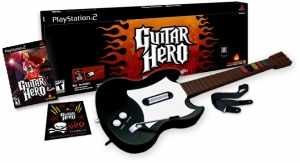
Where Did They Go?
The smash success of this formula started a major trend throughout the gaming world. Neversoft studios quickly swooped in and came out with many sequels to the original while Harmonix branched out and created Rock Band which followed the same formula as Guitar Hero. Soon plastic microphones drum sets and other peripherals emerged changing the games from solo guitar to entire bands. Legendary bands like Metallica and the Beatles got their own versions of the game so that people could play through their entire catalogue of songs. For a while the Guitar Hero/Rock Band craze was at a fanatical pace, however around 2010 the games just kind of stopped. People lost interest and the genre died out.
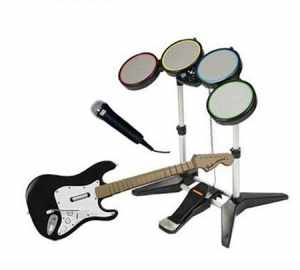
This dying out happened for a number of reasons. For starters, the genre was somewhat overpopulated. The Rock Band series had 11 released games between 2007 and 2012 while Guitar Hero had 9 games between 2005 and 2009, and this isn’t counting expansions to their previous titles. If gamers wanted all of these games, they had to pay a lot of money for each copy, plus the cost of each instrument.
The games weren’t the only thing flooding the market. As mentioned above there were a number of expensive peripherals added to the Rock Band experience. Bass guitars, fretted guitars, DJ turn tables, drums, microphones, keyboards; each one of these cost players money to buy and replace when broken. To make things even more expensive, if the gamer wanted to buy a game for a different console they would have to buy brand new controllers to go along with it (or at the very least they would have to buy adapters for their current controllers). The fantasy of being a legendary guitarist was scraped by the reality of its cost.
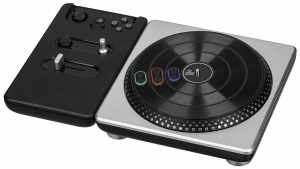
Some of these peripherals were extremely unpopular. DJ Hero as well as the plastic turntable controller were met with a lot of negative outpouring from fans of the series. The same thing can be said for the changes made to the standard Guitar controller. Throughout the life of the franchise, the guitar controller changed several times, adding new styles, different button layouts and even being modeled after real guitar brands like Stratocaster or Gibson Les Paul. There was a divide between those who had the fanciest and newest controller and those who didn’t, and creating a divide amongst their audience isn’t something that works out well for developers. People disliked the new controllers as they needlessly complicated the game, turning it from a fun party game to homework.
Finally was the evolution of the mobile platform. Gamers soon had to choose between spending upwards of $100 on the new Guitar Hero game and controller, or spend $4.99 on games like Tap Tap Revenge or DDR S. The ease of both play and accessibility killed the Guitar Hero genre for quite some time.
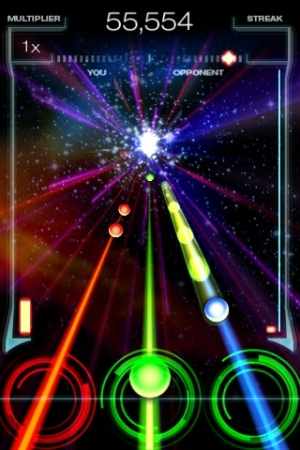
A New Beginning?
However this genre would re-emerge. In 2015 Rock Band 4 and Guitar Hero Live were released onto the market and fans rejoiced. Both games sold incredibly well and were met with praise by both critics and fans alike. They are a blast from the past for many gamers who started playing them 10 years ago, but unfortunately the games suffer in this new gaming environment. The changes made to try and keep up and be competitive in the current gaming market, however they don’t seem up to the daunting task of keeping Rock Band and Guitar Hero relevant in the modern day.
The first and most prominent thing that has changed in the gaming world is the Let’s Play community. Let’s Players and Streamers are incredibly popular, some raking in hundreds of thousands of views on each video they make. Personalities like the Game Grumps, Achievement Hunter, and Chuggaaconroy are famous in their circles and play through a myriad of games for the pleasure of their audience. Certain games like Five Nights at Freddies, Amnesia: The Dark Decent and Goat Simulator can directly trace their success back to Let’s Players giving buying them, playing them for their audience and drumming up lots of free advertising for them. Both Freestyle Games and Harmonix understood this and designed the new Rock Band/Guitar Hero games for this new gaming community. Rock Band 4 reached out to many of these lets players, even sponsoring a live streamed concert set up by Roosterteeth, Funhaus and other Let’s Players and Live Streamers.
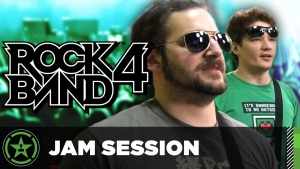
The real challenge for Let’s Players and Live Streamers is maintaining this without direct support from Harmonix or Freestyle Games. Websites like Youtube and Twitch have automatic programs that scan for copy written material such as music. These programs could, and often do, take down videos for containing even small amounts of copy written material used in a way that complies with free use policies. This means that many Let’s Players won’t risk losing views and revenue on a video that has a chance of being taken down, resulting in less exposure and a smaller community.
The other way that these companies have tried to make their games viable in the new gaming market is the inclusion of updates and rosters. Rock Band 4 came out with 65 songs but had over 1500 possible downloadable songs available for purchase. Each song costs between $1.00 and $2.00 and includes a list of songs from every previous Rock Band game. On one hand this is good for the game series. With a roster of ever changing songs available for download the market won’t be flooded by a ton of different Rock Band games while at the same time the game won’t become stale for gamers. It also allows people to choose what song they want to purchase rather than buy a game and only want a select number of songs in that game. On the other hand however is the galling cost that this creates.
The game itself costs almost $200.00 with a guitar, but to get the full experience, gamers will have to pay THOUSANDS of dollars for the full song list. That price isn’t including the purchase of new Drums, Microphone, other Guitars or an adapter if the players still has their old PS3/Xbox 360 Rock Band controller. In short the new games may have a longer potential legacy to them, but they will cost exponentially more to get all the content.
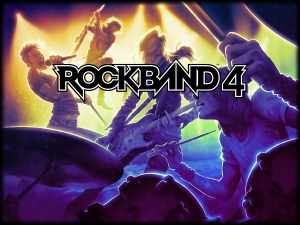
Guitar Hero Live has a different system in place for new songs. In Guitar Hero Live there is a setting called Guitar Hero Live TV, which acts like a TV channel for songs. Songs are chosen at random to be played online streaming through GHTV for everyone to play for free for a limited time before another group of songs gets chosen and the cycle continues. If you want to play a specific song you can spend “play coins” to choose the song you want to play. These play coins can be earned in game, but also can be purchased with real money. Alternatively players can purchase a Party Pass for approximately $6.00 that unlocks all the songs you want for 24 hours.
This system is supposed to make it more like a streaming music service, however all it really does is force players to pay over and over again just to get what they want out of the game. It is also a very confusing system with different channels of songs, poorly implemented search options that don’t tell the player what songs are available and very little explanation as to what GHTV is. This creates a system that is player hostile as trying to learn the system often means experimenting with the system, requiring the player to spend a few of their play coins just to understand the system in place.
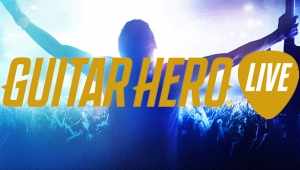
In short, Rock Band and Guitar Hero are still as fun as they were before, but really can’t survive in the current market. Their micro-transactions are abysmal, the price in general is exorbitant and the lack of online sharing through Youtube, Twitch or Let’s Players means that a large portion of fans that would have enjoyed the content are missing out. The new additions to try and keep up with the new gaming community unfortunately hinder the games drastically. It probably won’t hit the same peak that it had in the late 2000’s but the new versions of the game mean that they won’t be going away any time soon.
What do you think? Leave a comment.



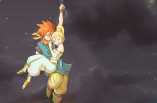
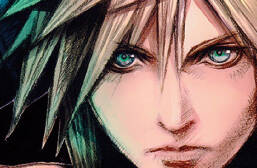






Having had a go at guitar hero (and trying some songs I actually play live in a covers band), I was booed off stage for being pants. My tone deaf brother in law sent the crowd wild, however. Hmm.
Child of Eden is a pretty fantastic music game, building on the foundation blocks of the classic Rez – it’s even the sole reason to get a kinect on the 360!
Parappa the Rapper is still one of the greatest things ever created.
As a guitar player, Guitar Hero always baffled me. If you’d set aside all the hours you would have spent practising Guitar Hero and used the time to learn the guitar, you’d have gained a much more useful skill.
Someone will come along soon and tell me I’ve missed the point.
You’ve missed the point…. (well somebody had too).
It is different though (and I’ve been playing the guitar for 20+ years). Learning a real instrument is hard, although ultimately rewarding it can take some time to get to the stage of feeling that buzz from playing a piece of music, let alone having the confidence and skills to that it a communal setting, with other people playing along and listening.
Guitar Hero (haven’t had any experience of Rock Band) is different, the game sets up the concert setting and simulates that experience of playing live that you can tap into pretty quickly. It obviously isn’t the same rewarding experience of really playing live, but the difference is that it can deliver this experience almost out of the box.
Above all, it is also fun. I have never seen a couple of people pick up a guitar and have so much fun within 2 hours of doing so for the first time. Trying to switch between chords smoothly for a simple 3 chord progression can take time, and can be pretty frustrating. Guitar Hero circumvents this to deliver the fun, but without the ultimate long term reward of learning an instrument.
Guitar Hero is different to playing a guitar. Guitar Hero is basically Simon, you click buttons along with the rhythm onscreen but it simulates the full Rock Star experience. Its a simple task with simple rewards.
Its like sports games. Playing sports games is nothing like playing the sport, but it simulates playing in the biggest stages of all time. It simulates in an easier scenario the rewards for the full thing.
Being a rockstar would be awesome but as a guitar player yourself I’m sure you understand the incredible amount of work that goes into it. There have probably been times when you practiced even when you didn’t want to, or times when you practiced something that wasn’t fun but you knew that it would make you a better player to practice it. Guitar hero is a lesser reward for lesser work, but above all its just fun. Its fun to play along with the game, to be in the fake limelight. Its fun to play with friends and on your own.
Also its arguable what the usefullness of the skill is. It is different skills but neither is useful in the grand scheme of things. You can argue that you find Guitar playing more useful because you have a community of friends that enjoy playing and listening and learning with you, but if someone doesn’t care about the guitar and doesn’t have friends who care about it then they won’t care if they are good playing guitar. Those people could have nights of drinking and Guitar Hero where being able to play well would make the whole night more fun, therefore having Guitar Hero skill is more useful to them.
I think South Park said it all with their Guitar Hero episode – especially the ‘unplugged’ scene.
I’m so glad this subject got the attention it deserves. I think it is so fascinating that this kind of game exists and that it is making a comeback!
Definitely an interesting article! I have actually been thinking about how Guitar Hero Live seems to be the revival of instrument-styled rhythm games.
Loved one of the Guitar Hero’s on Xbox 360…. Spent whole days trying to get 100 per cent on Pat Benatar’s Best Shots and fail just before the end and then you’d have to keep trying again and again like it was crack cocaine!
I have been playing the guitar hero series since its debut in 2005 and I am still playing now. They are my absolute favourite games.
All the effort to learn the game – why not learn to play a real guitar? Much more rewarding.
Because there are five buttons to learn, rather than six strings and 22 frets? Several orders of magnitude separate the two in both difficulty and time commitment.
Because 5 buttons are much more accessible and can be learned over the course of months rather than years.
Also that there is a competitive aspect of games like these that isn’t as immediately obvious with traditional instruments. For instance, it’s harder to get more points than my buddy playing Stairway to Heaven in real life.
Lets hope Activision don’t get too greedy, overcrowd the market with multiple Guitar Hero games and kill the whole genre off.
I really like the Rock Band and Guitar Hero series because they have multiple levels of play, from casual play with friends at parties to intense sessions spent trying to five star “Raining Blood” on expert mode.
Guitar Hero wasn’t a proper video game, it’s more a pastime.
What constitutes a proper video game in your opinion?
Positive-vibe games like Rock Band or Guitar Hero are much better than militaristic first-person shooters (with a couple exceptions).
I’d never really got into these games, but the other day I was at a friend’s house and he hooked up his electric drum kit to rock band (I think) and it was amazing. I think it worked loads better with drums than guitar, because it’s really all about rhythm – the guitar thing seems a bit of a weird choice to me, but there you go. Anyway, I went home and told my wife I needed to buy a drum kit… she didn’t agree…I don’t have a drum kit.
Guitar Hero really was the best. A great laugh, and made you feel as if you really were capable of playing the guitar. After playing it in my house, my nephew was inspired to take some guitar lessons. He’s now 17 and has his own band.
It was the same for me. It actually made me want to play a real guitar and I have been playing pretty much everyday for 6 years
The band is pretty shit by all accounts, but that’s beside the point.
Casual gamers have moved away from the consoles now.
Wow, this is fascinating. I never got into games like this, though if someone made a game with a viola, I’d be prepared! I like how you mentioned the challenge of live streaming/let’s playing a game set-up like this. Only time can tell if these sort of games will adapt and survive. Good work.
I love being able to play along to my favourite songs. They have to be hard or expert dufficulty though as it gets boring quick.
If there is a demand for this form of gaming, as you seem to imply, then, as a general rule, another company shall at some point in the future find a way to create this sort of game, but at a noticeably cheaper price. As such, I interpret your observations as a harbinger of the sort that I mentioned.
As a long time fan of rhythm games, I’m pleased to see GH and RB making comebacks. Parappa the Rapper was one of the first games I played and the genre has been a staple of games I regularly play ever since, with titles like Parappa, Dance Dance Revolution, Guitar Hero and Project Diva among my favourites.
Outside of the fun social aspect of the game, what I really owe to Guitar Hero is the soundtrack for the game. I discovered so many new artists from playing through each title in the series, some of which I still listen to a lot today. It also encouraged me to pick up the guitar as my personal instrument of choice several years ago. I can’t quite say Guitar Hero will make you “better” at a real guitar, but as a source of inspiration to try a real instrument, it really helps. I agree there will always be a place for these titles, even if their popularity is diminishing.
I completely agree that Guitar Hero and Rock Band will not survive in the market for as long as it did in the early 2000s. I believe gamers who played one or both video games will also contend that the merchandise no longer offers a fun and challenging mode. My biggest issue is the button configuration; there are three buttons instead of five for Guitar Hero’s guitar. This style has literally frustrated gamers who have played these games before the newest version came out. Not only is the guitar’s configuration frustrating, it also lacks a sense of how to operate a legitimate guitar. Many friends of mine who were influenced to begin playing an instrument because of Guitar Hero. The tracks that Guitar Hero and Rockband chose are, however, phenomenal. I understand that with time comes change, but sometimes new isn’t always better.